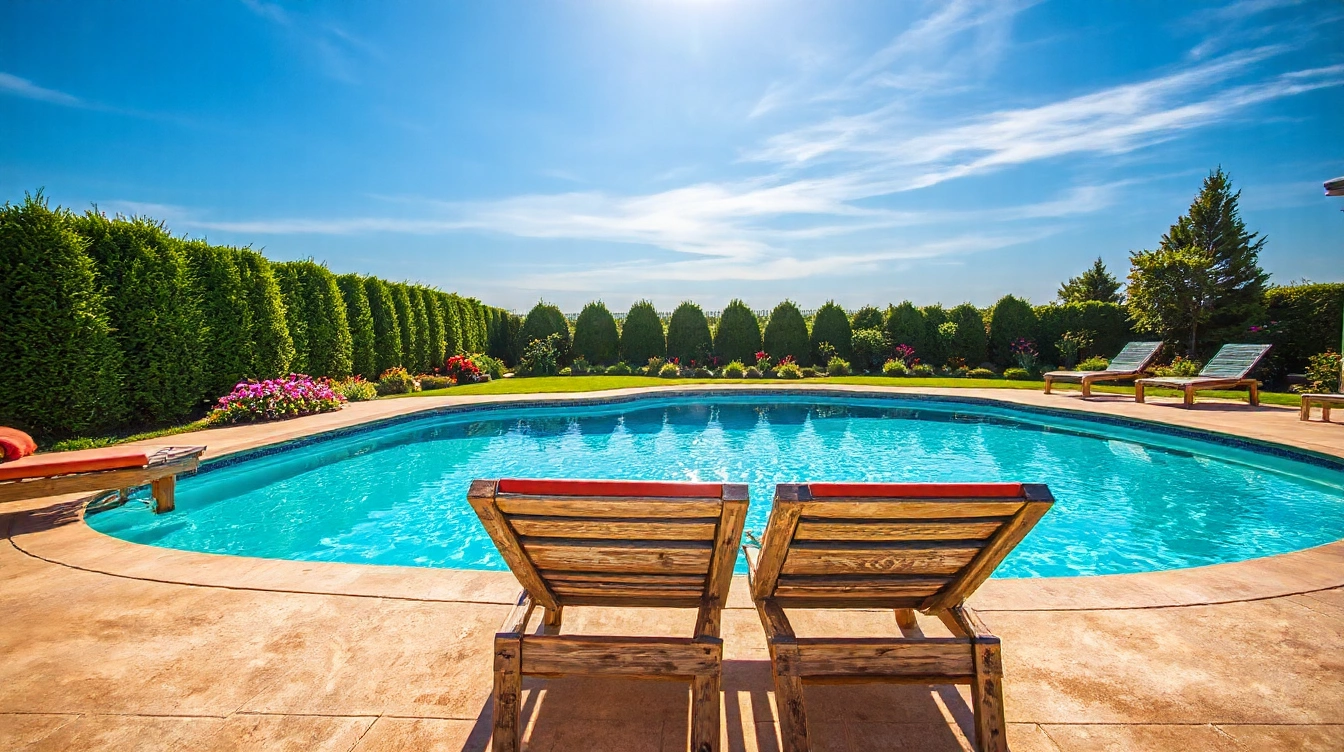Cost Breakdown of Installing a Swimming Pool in the UK
Understanding swimming pool installation cost UK starts with recognizing the variety of pool types. In-ground pools generally involve higher expenses because of excavation, structural work, and permits. Above-ground pools are more budget-friendly but may offer limited customization. Natural pools, gaining popularity for their eco-friendly appeal, often require specialized landscaping and filtration systems, adding to pool building expenses UK.
Several key factors influence these costs. The choice of materials impacts the initial investment significantly; for example, concrete and tiled pools are pricier than vinyl-lined options. Pool size is another major determinant – larger pools demand more materials and longer construction times, pushing costs up. Additionally, site preparation such as ground leveling, drainage improvement, and access to utilities can lead to unforeseen fees, increasing the overall swimming pool installation cost UK.
This might interest you : How Can a Home Swimming Pool Enhance Your Property Value?
Be prepared for additional expenses beyond construction. These include maintenance equipment, landscaping around the pool, and safety installations. Budgeting for these helps avoid surprises and ensures a smooth project from start to finish, making your pool building expenses UK more predictable and manageable.
Ongoing Maintenance and Long-Term Expenses
Maintaining a swimming pool in the UK involves consistent efforts such as regular cleaning, chemical balancing, and heating system upkeep. These tasks ensure the pool remains safe and enjoyable while preventing costly damages. Owners should anticipate spending on pool chemicals, filter replacement, and occasional heating repairs as part of annual maintenance.
Also to read : How Can You Design an Eco-Friendly Home Swimming Pool in the UK?
The average annual cost for swimming pool maintenance UK typically ranges between £1,000 and £2,000, varying by pool size and usage frequency. Over a pool’s lifetime, these expenses accumulate substantially, making long-term pool costs an essential consideration before installation. Budgeting for these ongoing needs helps avoid unexpected financial burdens.
When it comes to pool repair UK, common issues include leaks, filtration system failures, and heater malfunctions. Repairs can cost anywhere from a few hundred to several thousand pounds depending on severity. Proactive maintenance reduces the risk of major repairs, protecting your investment and ensuring your pool remains in top condition for years. Understanding these factors promotes informed decisions and effective financial planning for pool ownership.
Effect on UK Property Value and Resale Appeal
Adding a swimming pool to a property in the UK can have varying effects on property value and resale appeal. Expert consensus suggests that while a pool may enhance luxury appeal, the actual impact on price depends heavily on location and market context. In regions where outdoor amenities are prized—such as affluent southern areas—a pool can boost home resale value by attracting discerning buyers who see it as a desirable asset.
However, in cooler or urban areas, a swimming pool might not increase the price significantly and could even deter some buyers concerned about maintenance costs. A pool’s effect on home resale often hinges on buyer perception: some view pools as a luxury lifestyle upgrade, while others prioritize lower upkeep and safety, especially families with young children.
Statistically, homes with pools may experience shorter time on market in high demand zones, as they stand out among listings. Conversely, in markets where a pool is rare or less valued, time on market may lengthen due to a narrower pool of interested buyers. Understanding these regional and buyer preference nuances is crucial when considering how a swimming pool impacts UK property value and resale potential.
Climate and Suitability for Pools in the UK
Understanding the swimming pool UK climate is crucial for potential pool owners. The UK’s temperate yet often unpredictable weather means outdoor pools face limited periods of comfortable use. Typically, pool usage UK peaks during late spring to early autumn, roughly May through September. Outside these months, cooler temperatures and frequent rain reduce pool usability, impacting how often pools are enjoyed.
Seasonal pool use UK conditions necessitate adaptations to maintain usability and manage costs. Pool covers are essential during cooler months to conserve heat and prevent debris accumulation. Additionally, heating systems—ranging from heat pumps to gas heaters—extend the swimming season but add to operational expenses. These adaptations, while beneficial, create ongoing financial commitments that must be considered.
The lifestyle and frequency of pool use in UK households often reflect these climatic realities. Many users treat pools as seasonal amenities, planning activities around weather windows. Despite these limitations, pools provide valuable exercise and recreation during warmer months. Understanding the swimming pool UK climate helps set realistic expectations around usage patterns, maintenance needs, and overall suitability for different households.
Energy Efficiency and Insurance Considerations
Choosing energy efficient pools UK offers both environmental and financial advantages. These pools use less power through advanced heating systems, LED lighting, and smart control technologies, significantly reducing utility costs over time. Investing upfront in energy-saving features like solar heating or heat pumps can pay off by lowering monthly expenses and minimizing your carbon footprint.
Regarding pool insurance UK, it’s important to note that installing energy-efficient equipment can influence your insurance premiums. While some insurers may recognize eco-friendly upgrades and offer discounts, others might charge slightly higher premiums due to the increased value of specialized components. Generally, a modest premium increase reflects the higher replacement costs of energy-saving technology, but the long-term savings often outweigh these additions.
Eco-friendly pool options also include sustainable materials and water-saving filtration systems. These designs contribute to lower maintenance costs and align with growing environmental standards in the UK. To maximize benefits, work with providers specializing in energy efficient pools UK and confirm how your choices affect pool insurance UK. Being proactive helps ensure your eco-conscious investment remains protected without unexpected financial burdens.
Alternative Pool Options for UK Homes
Exploring alternative swimming pools UK offers homeowners smart choices beyond traditional large pools. For those with limited space, small pools UK such as plunge pools and exercise pools provide compact, practical solutions. These pools fit comfortably into gardens or patios, making them ideal for urban or suburban settings where space is at a premium.
Low-cost pool solutions like natural ponds are gaining popularity due to their eco-friendly design and lower maintenance demands. Unlike conventional pools, natural ponds often use plants and biological filters to keep water clean, reducing the need for chemicals and hefty service bills. Exercise pools, designed for swimming in place, combine fitness benefits with a small footprint, perfect for year-round use.
When considering ongoing costs, alternative swimming pools UK typically require less energy consumption due to their size and filtration methods, which results in lower utility bills. Maintenance expenses often decrease as well, especially with natural ponds. Comparing these options helps UK homeowners select the best balance between upfront investment and long-term affordability, paired with lifestyle benefits. With these choices, creating a private oasis is achievable without sacrificing space or budget.
Weighing Financial Viability Against Lifestyle Benefits
Balancing the cost-effective swimming pools UK market with the tangible benefits of owning a home pool requires a clear understanding of financial implications and lifestyle enhancements. While installing a pool involves considerable upfront and maintenance expenses, a thorough pool investment analysis reveals more nuanced outcomes.
Financially, home pools in the UK may not always yield direct monetary returns through increased property value. However, their non-tangible benefits, like reliable exercise access, entertainment opportunities, and family bonding, represent significant lifestyle advantages. These benefits often translate into enhanced well-being and quality time at home, which money alone cannot quantify.
When deciding if a pool is a worthwhile investment, homeowners should weigh the benefits of home pools UK against potential costs such as heating, cleaning, and repairs. Reflecting on personal usage frequency and long-term home plans can inform this choice uniquely. In the UK context, where the swimming season can be shorter, evaluating year-round value versus seasonal enjoyment is crucial.
In sum, a cost-effective swimming pool in the UK demands a careful pool investment analysis that respects both financial realities and lifestyle aspirations. This balanced approach aids homeowners in making a decision that aligns with their priorities and resources.









